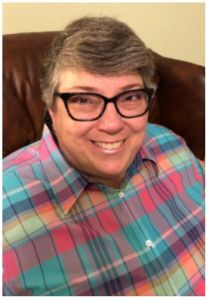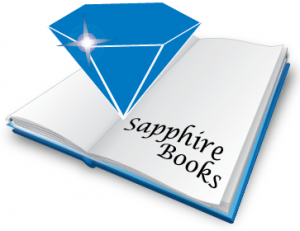An Interview with the author of "You Can't Outrun Your Roots", McGee Mathews

General Author Interview Questions
What do the words “writer’s block” mean to you?
I used to think writer’s block was BS until it hit me. A combination of poorly delivered feedback and medical issues left me unable to either create new material or reworked/edit rough drafts. Writing is hard work. Editing is harder work. I spent some time resting, doing physical rehab for my body, and reading other books in all sorts of genres. I quit talking about my WIP as I think it was diluting my enthusiasm for the story. Then I sent it to a dear beta reader who told me to quit stalling and finish it up. She was right, of course.
How do you process and deal with negative book reviews?
Let’s face it. They will happen and it always hurts. Opinions about books are like noses, so I try to consider their life experiences are likely very different than mine. I do sift it a bit to see if there is constructive criticism lurking between the stinging barbs. I complain to my wife, but I DO NOT EVER respond.
What comes first for you — the plot or the characters — and why?
Usually, I get an image of a scene between two characters, then play with what kind of people they might be. I look for pictures online to use as my “model” and jot a few character traits down. Dialogue comes easily to me, and I spend a lot of time editing back in things like setting and plot points I missed.
Author Interview Questions about Their Book
What is a significant way your book has changed since the first draft?
In the beginning, I thought the story was more about the character that moved away, and I ended up dumping three chapters of stuff when I realized it was more about the woman who stayed.
How much research did you need to do for your book?
I did way more research than I needed to do for the story itself, but tiny bits found their way into the final draft. As I write, I leave a XX where I need to go back and verify certain details otherwise I end up in a rabbit hole.
How did you come up with the title for your book?
I loathe coming up with titles, and the working name was meaningful to me, but not to anyone else. One of my beta readers suggested the title.
Fun Author Interview Questions
What is your writing process like? Are you more of a plotter or a pantser?
I started as a pantser but kept writing myself into corners. Now I make the most basic of plot lines. I feared it would take the creativity down, but it makes it easier to get writing.
What do you need in your writing space to help you stay focused?
It’s the opposite. I need an alarm to remind me to stand up and let the dog out once in a while. The house could collapse around me and I wouldn’t notice.
What do you think of NaNoWriMo? Worth it?
I did Nano and it helped me to just sit down and pound out the story. Sprinting is now one of my favorite ways to write. The hard part is to realize how much is trash and rewrite/delete it after the fact.
Questions about Writing
What is the most valuable piece of advice you’ve been given about writing?
Put your butt in the chair. You can’t edit a blank page. That was two, but they go together. Thank goodness we work in the time of electronics and can literally whisk chapters around or change a character's name with a few keystrokes. Editing by hand and then retyping would be almost impossible for me.
What advice would you give to help others create plotlines?
Know your genre. If you decide to explore something new, read those stories to help you understand what readers expect to see. A romance must end Happy For Now or Happily Ever After. That’s the genre. Not to say you can’t have romantic elements in a mystery, or vice versa, just know your audience will not be satisfied if you don’t say who did it at the end.
What’s your writing software of choice?
By far, Scrivener. It lets me keep research, outlines, and character information all in one file. The format lets me see the chapters as note cards and I can make notes such as POV in a side column. It does leave some phantom stuff when you convert to Word, but overall I love it.
Questions to Ask Authors about Other Books and Authors
What books do you enjoy reading?
I love a cozy mystery. I almost never guess who the villain is and I’m pretty wimpy so thrillers give me nightmares.
What books did you grow up reading?
The entire set of Nancy Drew and Hardy Boys books that the local library stocked. I loved Mrs. Piggle Wiggle, Pippi Longstocking, and Romona Quimby.
Do you prefer ebooks, printed books, or audiobooks most of the time?
I do like to hold a real paper book, but it’s easier on a kindle to change the font size.
Personal Questions for Authors
Has writing and publishing a book changed the way you see yourself?
Writing makes you a writer. Having finished a book makes you an author. And to my generation, having a publisher is a tiny validation that someone believes in your work enough to risk putting it out in the universe.
At what stage (or stages) of your life have you done most of your writing?
I remember clearly as a child at a writing conference thinking to myself that someday I was going to do interesting things so I could write about them. I’m not sure how successful I was at that; however, I have written the most as a mature adult.
Who has been the biggest supporter of your writing?
My wife. Chris encouraged me to start writing again. She dragged me to the Book Lovers convention in Reno and nudged me through the publishing process. She reminds me that I write because of the stories banging around in my head demanding to be told. Sales are great, and praise is good, but really connecting with a reader is amazing.

